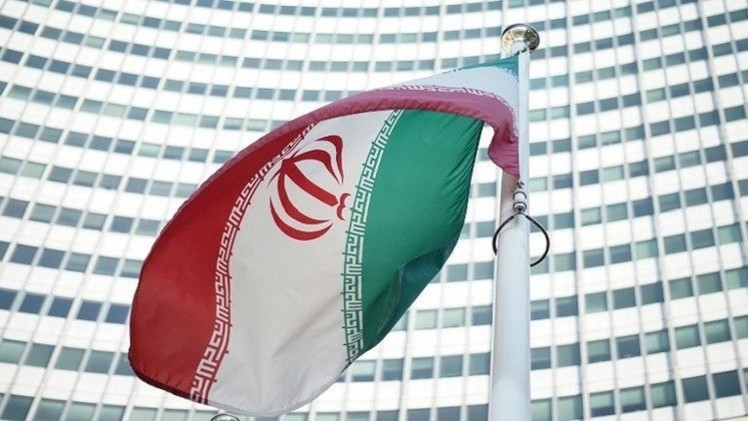سياسة إيران الإقليمية : دراسة في سياسة ايران أتجاه محيطها الاقليمي
Iran's regional policy (Study of Iran's policy towards its regional environment)

Prof. Dr Hani Elias Khader Al-Hadithi – Professor of foreign policy and international relations Asian affairs
المركز الديمقراطي العربي : –
- مجلة مدارات إيرانية : العدد عشرون حزيران – يونيو 2023 المجلد 6, دورية علمية محكمة تصدر عن #المركز_الديمقراطي_العربي ألمانيا –برلين” .تعنى بالشأن الإيراني داخليا واقليميا ودوليا.
-
فصلنامه مدارات إيرانية فصلنامه أي علمي از طرف مركز دمكراسي عربي برلن منتشر مي شود.
للأطلاع على البحث “pdf” من خلال الرابط المرفق :-
ملخص:
نسعى هنا للبحث في سياسة ايران اتجاه محيطها الاقليمي ومن الطبيعي ان نلقي ضوءا على تكوين ايران الجيوسياسي و ألاثنوغرافي.
تكمن مشكلة البحث في ديمومة التطلع الايراني للهيمنة على الدول المجاورة لها جغرافيا , وهو امر لم يقتصر على نظام محدد ، بل مستمر على امتداد تاريخها القديم والحديث ، يعود ذلك لطبيعة الشخصية الايرانية( الفارسية ألمتطرفة ) والمتفاعلة مع طبيعة تكوينها الجغرافي حيث الامتداد من سلاسل الجبال عند حدودها شمالا , نزولا عند سفوح ايران والاراضي المنبسطة والخصبة زراعيا ذات الموارد الاقتصادية عند حدودها جنوب غرب ايران حيث بلاد الرافدين .
شكل قيام الثورة الايرانية عام 1979 واعلان الدولة الاسلامية ، اعلانا لاستمرار هذا النهج التوسعي عبر تاكيد الدستور على مبدأ تصدير الثورة الاسلامية كمبدأ يتم اعتماد التعامل فيه أتجاه جميع بلدان العالم الاسلامي والتي توصف ببلاد انظمة( الكفروالتبعية ) و التي ينبغي تغييرها مجتمعيا وسياسيا وايديولوجيا لاقامة حكومة العدل الالهي ومركزها قم .
لذلك فان مساعي ايران لتغيير الانظمة واحتواء البلدان المجاورة وخاصة بلاد المشرق العربي حيث يمكن اعادة اقامة الامبراطورية الفارسية لتشمل جميع بلدان المشرق العربي وصولا الى البحر المتوسط ، ظل هاجسا سعت له ايران عبر وسائل عديدة منها استخدام اذرعها الموالية لها وبناء منظومات عسكرية موازية للجيوش المحلية على غرار الحرس الثوري الايراني .
ان الفشل العسكري الذي نجم عن خسارتها حرب الثمانية سنوات مع العراق 1980-1988 ادى بها الى التفكير باستمرار العمل على تصدير الثورة الاسلامية عبر الوسائل السياسية، بيد ان اجتياح العراق للكويت عام 1990 وماترتب عن ذلك من تداعيات خطيرة ابرزها ضعف الجبهة العربية المواجهة لايران وانفراط عقد العمل العربي المشترك ثم احتلال العراق عام 2003م فتح شهية ايران الواسعة لاجتياح بلدان المشرق العربي حتى بدأ كبار المسؤولين الايرانيين يعلنون صراحة سيطرتهم على اربعة عواصم عربية ( بغداد-دمشق-بيروت-صنعاء) وتحكم بلادهم باهم الممرات المائية الاستراتيجية حيث الخليج العربي ومضيق باب المندب والبحر الاحمر .وهو الامر المترافق لاعتبارات جيوبولتيكية مع سعي ايران للتدخل بالشان الداخلي للبلدان المجاورة الاخرى وعبرمختلف الوسائل كما حصل في باكستان وبلدان وسط اسيا وافغانستان وتركيا ، الامر الذي ادى الى توترات مستمرة وتاثيرها سلبا في علاقاتها مع اغلب بلدان محيطها الاقليمي.
تأسيسا على ما تقدم نسعى في هذا البحث الى تلمس طبيعة سياسة ايران واتجاهاتها مع محيطها الاقليمي لنتناول قدر الامكان اهم تلك الاتجاهات مع التركيز على المحيط المؤثر في المحيط العربي فضلا عن دراسة السلوك السياسي الخارجي الايراني اتجاه تركيا باعتبارهما اكبر قوتين اقليميتين مؤثرتين ومحيطتين ببلدان المشرق العربي .
من الطبيعي البدء في موضوع صناعة القرار السياسي الخارجي مرورا بمباحث الدراسة وصولا الى اهم الاستنتاجات والمشاهد المتوقعة من وجهة نظر الباحث.
Abstract
introduction We seek here to discuss Iran’s policy towards its regional environment, and it is natural that we shed light on Iran’s geopolitical and ethnographic formation. The problem of the research lies in the persistence of the Iranian aspiration to dominate its geographically neighboring countries, which is not limited to a specific regime, but continues throughout its ancient and modern history, due to the nature of the Iranian personality (extreme Persian) and interacting with the nature of its geographical composition, as it extends from the mountain ranges at Its borders are in the north, down at the foothills of Iran, and the flat and fertile agricultural lands with economic resources are at its borders in the southwest of Iran, where Mesopotamia is. The establishment of the Iranian revolution in 1979 and the declaration of the Islamic state constituted a declaration of the continuation of this expansionist approach through the constitution’s affirmation of the principle of exporting the Islamic revolution as a principle in which dealing is adopted towards all countries of the Islamic world, which are described as countries of regimes (disbelief and dependency), which must be changed socially, politically and ideologically in order to establish a government of justice The divine center is Qom. Therefore, Iran’s endeavors to change regimes and contain neighboring countries, especially the countries of the Arab East, where it is possible to re-establish the Persian Empire to include all countries of the Arab East and all the way to the Mediterranean Sea, remained an obsession that Iran sought through many means, including the use of its loyal arms and the construction of military systems parallel to the local armies similar to Iran’s Revolutionary Guards . The military failure that resulted from its loss of the eight-year war with Iraq 1980-1988 led it to think about continuing to work to export the Islamic revolution through political means. Joint Arab action, and then the occupation of Iraq in 2003, opened Iran’s wide appetite to invade the countries of the Arab East, until senior Iranian officials began to openly declare their control over four Arab capitals (Baghdad-Damascus-Beirut-Sana’a) and their country’s control of the most important strategic waterways, including the Arabian Gulf, Bab al-Mandab Strait and the sea. Red. Which is associated with geopolitical considerations with Iran’s endeavor to interfere in the internal affairs of other neighboring countries and through various means, as happened in Pakistan, Central Asian countries, Afghanistan and Turkey, which led to continuous tensions and negatively affected its relations with most of the countries of its regional periphery. Based on the foregoing, we seek in this research to touch the nature of Iran’s policy and its trends with its regional environment to address as much as possible the most important of these trends with a focus on the influential environment in the Arab environment as well as studying the Iranian foreign political behavior towards Turkey as the two largest influential regional powers surrounding the countries of the Arab East. It is natural to start with the topic of foreign political decision-making, passing through the investigations of the study, to the most important conclusions and expected scenes from the researcher’s point of view




